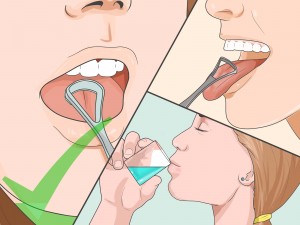Bad breath or halitosis, can result from poor dental health habits and may be a sign of other health problems.
All the food eaten begins to be broken down in your Mouth.
If you eat foods with strong odors (such as garlic or onions), brushing and flossing — even mouthwash helps to get rid of the odor temporarily.
The odor doesn’t go away completely until the foods have passed through your body.
If you don’t brush and floss teeth daily, food particles can remain in your mouth, promoting bacterial growth between teeth, around the gums, and on the tongue. This causes bad breath.
How to Prevent bad breath??
- Practice good oral hygiene.
- Brush twice a day with fluoride toothpaste to remove food debris and plaque.
- Brush teeth after you eat (keep a toothbrush at work or school to brush after lunch).
- Don’t forget to brush the tongue.
- Replace your toothbrush every 2 to 3 months or after an illness.
- Use floss or an interdental cleaner to remove food particles and plaque between teeth once a day.
- Rinse with an antibacterial mouthwash twice a day.
- Dentures should be removed at night and cleaned thoroughly before being placed in your mouth the next morning.
- See your dentist regularly — at least twice a year for oral examination and professional teeth cleaning and detect and treat periodontal disease, dry mouth, or other problems that may be the cause of bad mouth odor.
- Stop smoking and chewing tobacco-based products.
- Drink lots of water. This will keep your mouth moist.
- Chewing gum (preferably sugarless) or sucking on candy (preferably sugarless) also stimulates the production of saliva, which helps wash away food particles and bacteria. Gums and mints containing xylitol are best.
- Keep a log of the foods you eat. If you think they may be causing bad breath, bring the log to your dentist to review.
- Make a list of the medications you take as drugs cause bad breath.





